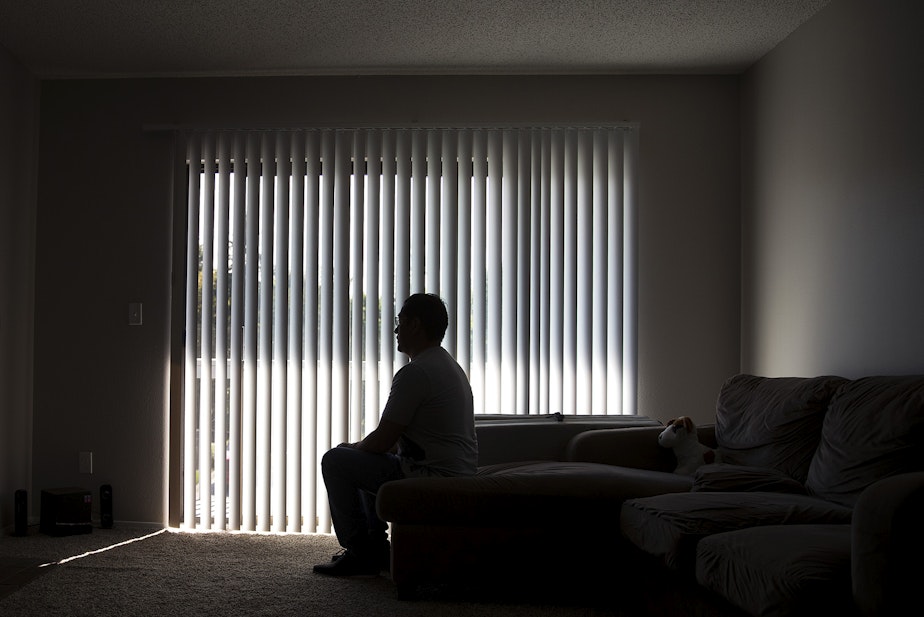Loneliness is an epidemic, can writing letters help?

Loneliness is often fodder for art, in paintings like in Edward Hopper’s "Nighthawks," where a solitary man eats alone at a diner, his illuminated form reflecting into the city night, or in poetry, as Emily Dickinson explored in "The Loneliness One Dare Not Sound."
While artists have long plumbed the depths of solitude’s impact on the soul, doctors are only now focusing on its consequences for our well being.
In fact, U.S. Surgeon General Vivek Murthy recently said that social isolation was an epidemic. While the pandemic certainly isolated people, the advisory said that people were increasingly experiencing loneliness before that.
Patrick Raue is a clinical psychologist and professor in the University of Washington School of Medicine's Department of Psychiatry and Behavioral Sciences and studies the effects of isolation on older adults.
"There's definitely a lot of research showing that we are all becoming less connected over time," Raue said, "and the surgeon general is highlighting some research showing that all of our social networks are getting smaller and the amount of time that we spend interacting with other people in person has really radically decreased over the past couple of decades."
Sponsored
In the face of this epidemic of loneliness in the U.S., Soundside reached out to the Extended Legacy Letters Program, run by the Goldsen Institute at the University of Washington. The program encourages intergenerational interactions, specifically connections between seniors and those under the age of 18. The program is centered around a single document.
"The letter is the tool to engagement. Most of us know what a letter is, it's manageable. I'm not saying come write your memoirs or your life story," said Dr. Karen Fredriksen-Goldsen, director and founder of the Goldsen Institute.
Throughout the program, people of different generations do activities to find commonalities and differences in what they’ve been through.
Fredriksen-Goldsen called these activities flash bonding, simple ways for people to connect quickly.
Over the course of the program, participants write their legacy letter — documents that describes themselves and the wisdom they’d pass on to future generations.
Sponsored
Fredriksen-Goldsen said participants with vastly different life experiences and perspectives don’t always jump into forming tight connections.
"There was a lot of trepidation about that," she said. "But yet, they walked away from that experience really having more self awareness, but also more understanding both of themselves in their experience, but also across generations."
The Goldsen Institute is gathering data to study the Legacy Letters Program.
Fredriksen-Goldsen said that initial indicators point to people feeling more connected after the program. She also said that participants are gaining the skills to connect after difficult experiences in life.





